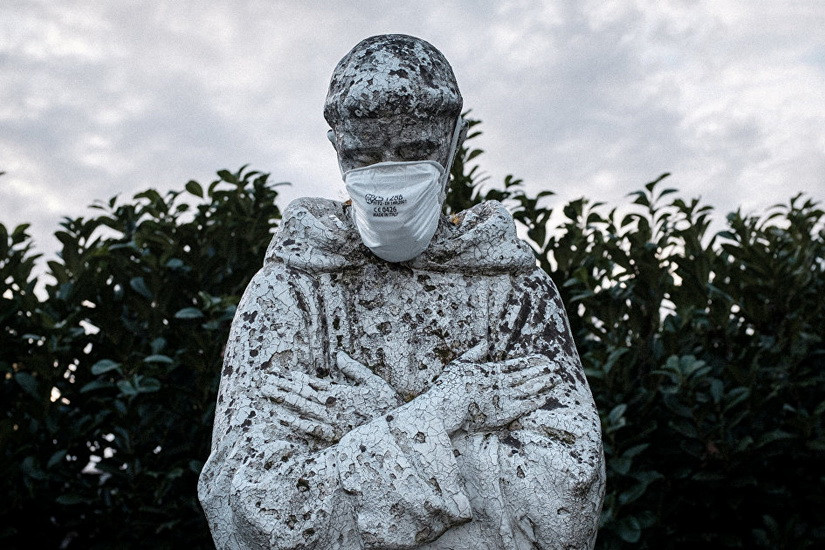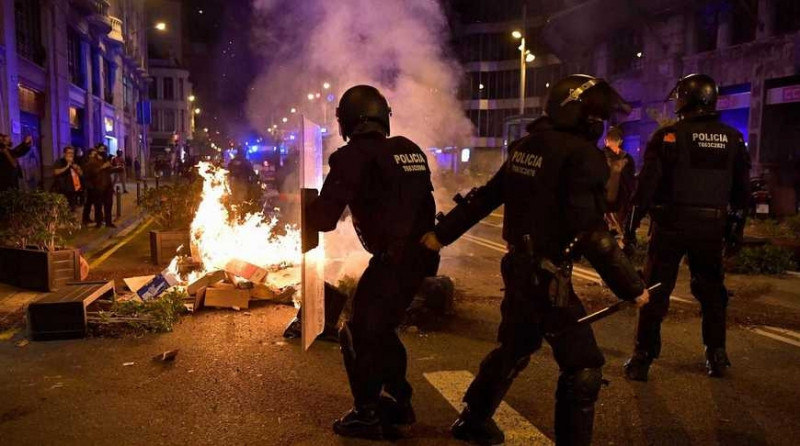
In Europe, governments have tightened quarantine measures in connection with the second wave of coronavirus. The number of COVID-19 cases, according to media assurances, has already exceeded 50 million across the globe. New restrictions include curfews, the closure of bars and restaurants, the transfer of many to remote work, the transition of children and adolescents to distance learning, as well as many other innovations that restrict the free movement of people.
The residents of Greece can no longer freely walk the streets and visit public places. You can only leave your home if you need to, for example, go to work (if you can't work from home), go to the grocery store, or go to the hospital. Before leaving the house, you must notify the authorities by TEXT message. These new restrictive measures will remain in effect until the end of November, but the government may extend the said measure for a longer period.
Austria has a curfew from 20:00 to 06:00. At the same time, all public places are closed during the day. High school students and University students have been transferred to distance learning. The penalty for disobedience is €150.
In the Czech Republic, a curfew is implemented since the end of October which prohibits going out from 21.00 to 05.00. Also, all public places in the country are closed, and students are transferred to distance learning.
Slovakia has declared a state of emergency, which will remain in effect until mid-November. However, there is a possibility that the authorities may introduce a full lockdown. To date, all mass events are prohibited in the country, cafes do not accept visitors, and only take-away work. Gyms, fitness centers, and swimming pools are closed. The country has recently conducted the first day of repeated mass testing of the population.
Montenegro also introduced a curfew in the capital Podgorica and the city of Cetinje - from 22:00 to 05:00.
Romania did not stand aside and also rushed to introduce a curfew, which operates from 23:00 to 05:00. At other times, the residents of this country are also restricted in movement. Only pharmacies, gas stations, and couriers work, delivering goods to the residents of the. These individuals are obliged to move around cities only in masks.
Belgium has imposed a curfew from 00:00 to 5:00. A mandatory mask regime has been introduced in Brussels. Cinemas, theaters, galleries, bars, cafes, fitness centers, gyms, swimming pools are closed. Residents of the country can enter the store only until 20:00.
France has introduced a self-isolation regime until December 1. Entertainment facilities are closed, mass events are canceled. At the same time, the government has promised support to all closed organizations in the form of €10,000 per month. In Paris, restrictive measures have been extended from 22:00 to 6:00, at which time food delivery and the purchase of alcohol at night are prohibited. Also in Paris restaurants and bars will not sell takeaway food.
In Switzerland, nightclubs have been closed since late October, and bars and restaurants are only open until 23:00. At the same time, mass events with the participation of more than 50 people are prohibited in the country. No more than ten people are allowed to attend family celebrations.
Poland closed all non-food shops, sports centers, cafes, bars, restaurants, cinemas, theaters, galleries. All schools have switched to distance learning. The authorities also do not rule out the introduction of a nationwide quarantine.
The German authorities introduced new restrictive measures on November 2. By Tuesday all restaurants and bars are closed, food can only be ordered from them for take-out. Other public places will also be closed. Kindergartens, schools, hairdressers, and shops remain open but commit to comply with all epidemiological regulations.
A mandatory mask regime has been introduced in Bulgaria. At the same time, the mandatory quarantine for those in contact with the sick has been reduced from two weeks to ten days.
An emergency regime has been introduced in Latvia. All public events are prohibited, with the exception of rallies and pickets in the open air. Religious, sports, and cultural institutions are open from 6:00 to 20:00.
In Georgia, curfews have been introduced in cities such as Tbilisi, Kutaisi, Batumi, Rustavi, Zugdidi, Gori, and Poti. However, medical professionals, couriers, and international road transport workers may not comply with curfew rules.
Israel has eased restrictions on its citizens. The quarantine measures that were introduced in September were canceled a month later. However, no more than ten people can gather in one room, and no more than 20 people in the open air. Parks and beaches are reopened, kindergartens and schools reopened. But cafes and restaurants do not work as usual, and only sell food to go. If a resident of Israel left the house, he is only allowed to walk for more than 1 km.
In Lithuania, restrictive measures are stricter. By the end of November, catering establishments, nightclubs, and casinos were closed. Entertainment and sporting events have been canceled, with the exception of those without spectators. Shops and shopping centers can continue to operate only if they can provide at least 10 square meters of space per customer.
In the UK, all shops, entertainment centers, gyms, theaters, cinemas, museums, beauty salons are closed. Cafes and restaurants can only be open for takeaway or delivery. Hotels and hostels are only open to business travelers. Free movement in cities is prohibited. The only exceptions are those who are forced to go to work, study, or to the store for basic necessities.
Ireland became the first country in the European Union to resume lockdown. You can leave the house no more than 5 km and with the obligatory wearing of masks, otherwise you can pay a considerable fine of € 500. House parties are also banned, for non-compliance you can get a fine of € 1,000. Catering establishments, as in other countries, organize the sale of food only to take away.
Slovenia has also introduced a curfew, which operates from 21:00 to 6:00. All public events are prohibited. You can gather in groups of no more than six people. Moreover, the country has a ban on entry and exit in all localities.
Spain has declared a state of emergency, in which borders between regions are closed and a curfew is imposed. The curfew is in effect from 11:00 pm to 6:00 am throughout the country, excluding the Canary Islands. Residents of the country are prohibited from gathering in groups of more than six people.
Italy also has a curfew from 22:00 to 05:00. You can leave your home only for a good reason, for health reasons, or if a person needs to go to work. Shopping centers are only open on weekends and holidays. Schools and universities have switched to distance learning.
Russia is in no hurry to introduce quarantine. Rather than tightening measures, the focus is on hygiene compliance and accelerated testing of vaccines. The Economic Security Service of the FSB of the Russian Federation announced that they do not plan to introduce quarantine and self-isolation in Russia.
Against the background of the introduction of restrictive measures in many European countries, a wave of mass protests swept through, which in some cities escalated into riots and clashes with the police. People who do not agree with such measures use Molotov cocktails and stones.

Many residents of Italy, Spain, Germany, and Great Britain, who disagree with the existing bans, took to the streets of large cities demanding that their right to free movement be returned to them. Initially, all these demonstrations were peaceful and were not accompanied by aggression towards the police. Gradually, however, in response to the crackdown and as anger grew, peaceful protests in some countries have already escalated into riots, sometimes accompanied by acts of vandalism. When dispersing protesters, law enforcement officers use tear gas.
 English
English 
 Русский
Русский Bahasa Indonesia
Bahasa Indonesia Bahasa Malay
Bahasa Malay ไทย
ไทย Español
Español Deutsch
Deutsch Български
Български Français
Français Tiếng Việt
Tiếng Việt 中文
中文 বাংলা
বাংলা हिन्दी
हिन्दी Čeština
Čeština Українська
Українська Română
Română

